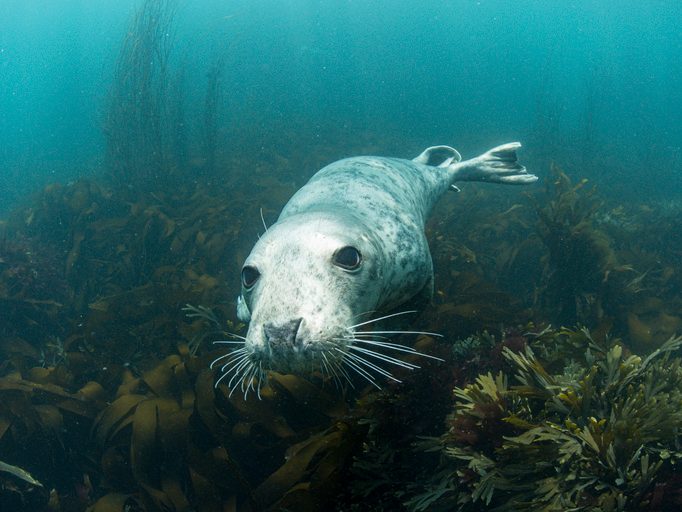
Researchers put six grey seals in a specially built tank to work out why they don’t drown – and discovered something unexpected
How did your country report this? Share your view in the comments.
Diverging Reports Breakdown
Researchers put six grey seals in a specially built tank to work out why they don’t drown – and discovered something unexpected
Seals can dive to great depths for long periods of time. So why do they never seem to end up unconscious? This question intrigued marine ecologist Chris McKnight and his colleagues at the University of St Andrews. They lined up six grey seals, temporarily taken from the wild, in a specially built tank. This was an enclosed underwater home with a feeding area and a domed breathing chamber at one end. The seals could forage for as long as they liked in the water and then surface to take a breath in the chamber.
Seals can dive to great depths for long periods of time, chasing their fishy prey. So why do they never seem to end up unconscious? This question intrigued marine ecologist Chris McKnight and his colleagues at the University of St Andrews.
To find out, they lined up six grey seals, temporarily taken from the wild, in a specially built tank. This was an enclosed underwater home with a feeding area and a domed breathing chamber at one end. The seals could forage for as long as they liked in the water and then surface to take a breath in the chamber, rather like emerging into the air through a hole in an ice sheet.
One of the seals from the study, Oisin. Credit: Sea Mammal Research Unit
The scientists filled the breathing chamber air with different combinations of oxygen and CO₂, starting with normal air at 21 per cent oxygen and 0.04 per cent CO₂. Gradually they switched to higher concentrations of oxygen and then lower, followed by higher and lower concentrations of CO₂. They measured how long the seals’ feeding trips lasted while breathing each of the air mixes.
The expectation was that high-oxygen air would mean the seals stayed underwater longer. High CO₂ levels should make the dives shorter, they thought, as with humans when high CO₂ levels in their blood activate the need to breathe. To their surprise, the amount of CO₂ had no effect on the length of time the seals took between breaths. But low oxygen levels certainly did.
Their conclusion was that a seal’s brain monitors the amount of oxygen in its blood, rather than the levels of CO₂, and the animals make their own decisions on how long to stay underwater based on that information. Instead of their bodies being governed by an involuntary reaction to the amount of CO₂ in their systems, seals can judge when their oxygen levels need topping up and make their way to the surface in a controlled and timely manner. Therefore, they never risk drowning.
More amazing wildlife stories from around the world
Source: https://www.discoverwildlife.com/animal-facts/mammals/why-dont-seals-drown
